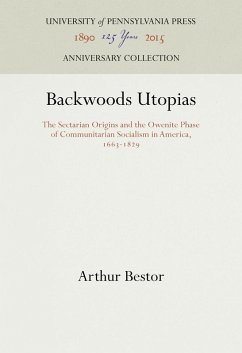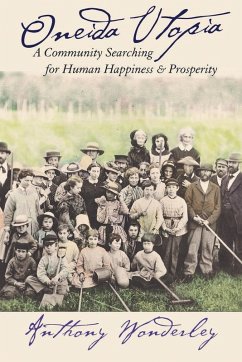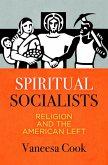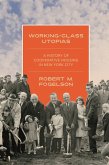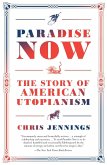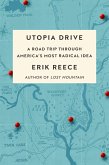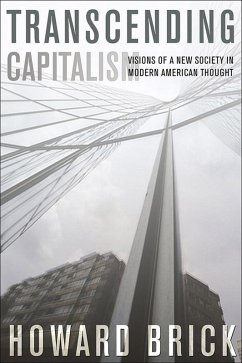The new society that the world awaited might yet be born in the humble guise of a backwoods village. This was the belief shared by the many groups which moved into the American frontier to create experimental communities-communities which they hoped would be models for revolutionary changes in religion, politics, economics, and education in American society. For, as James Madison wrote, the American Republic was "useful in proving things before held impossible." The communitarian ideal had its roots in the radical Protestant sects of the Reformation. Arthur Bestor shows the connection between the "holy commonwealths" of the colonial period and the nonsectarian experiments of the nineteenth century. He examines in particular detail Robert Owen's ideals and problems in creating New Harmony. Two essays have been added to this volume for the second edition. In these, "Patent-Office Models of the Good Society" and "The Transit of Communitarian Socialism to America," Bestor discusses the effects of the frontier and of the migration of European ideas and people on these communities. He holds that the communitarians could believe in the possibility of nonviolent revolution through imitation of a small perfect society only as long as they saw American institutions as flexible. By the end of the nineteenth century, as American society became less plastic, belief in the power of successful models weakened.
Dieser Download kann aus rechtlichen Gründen nur mit Rechnungsadresse in A, D ausgeliefert werden.
"This is not only the best existing study of the reception and application of Robert Owen's ideas in America but something rarer: a sympathetic account of the 'utopian' or, more properly, the 'communitarian' point of view."--New England Quarterly "On every count, Mr. Bestor's study is a model of historical scholarship. Based upon exhaustive and intelligent research, it is presented clearly, objectively, and with a minimum of words. Specialists will praise the critical approach, the thorough documentation, the bibliographical essay, and the authoritative checklist of all communitarian enterprises down to 1860. The general reader will applaud the careful definition of terms, the frequent generalizations, and the emphasis upon the ideas that underlay a faith in community life."--Saturday Review of Literature "Opinions still widely diverge as to the more significant lessons of that chapter of uniquely American history. But the intelligent citizen of today, challenged by revolutionary movements and programs of a vastly different type . . . will be grateful for a tolerant, sympathetic study of the earlier phases of social radicalism and insurgency of our soil."--Social Service Review "Students of American utopian developments will long be grateful for this contribution to the literature of the frontier."--American Journal of Sociology

